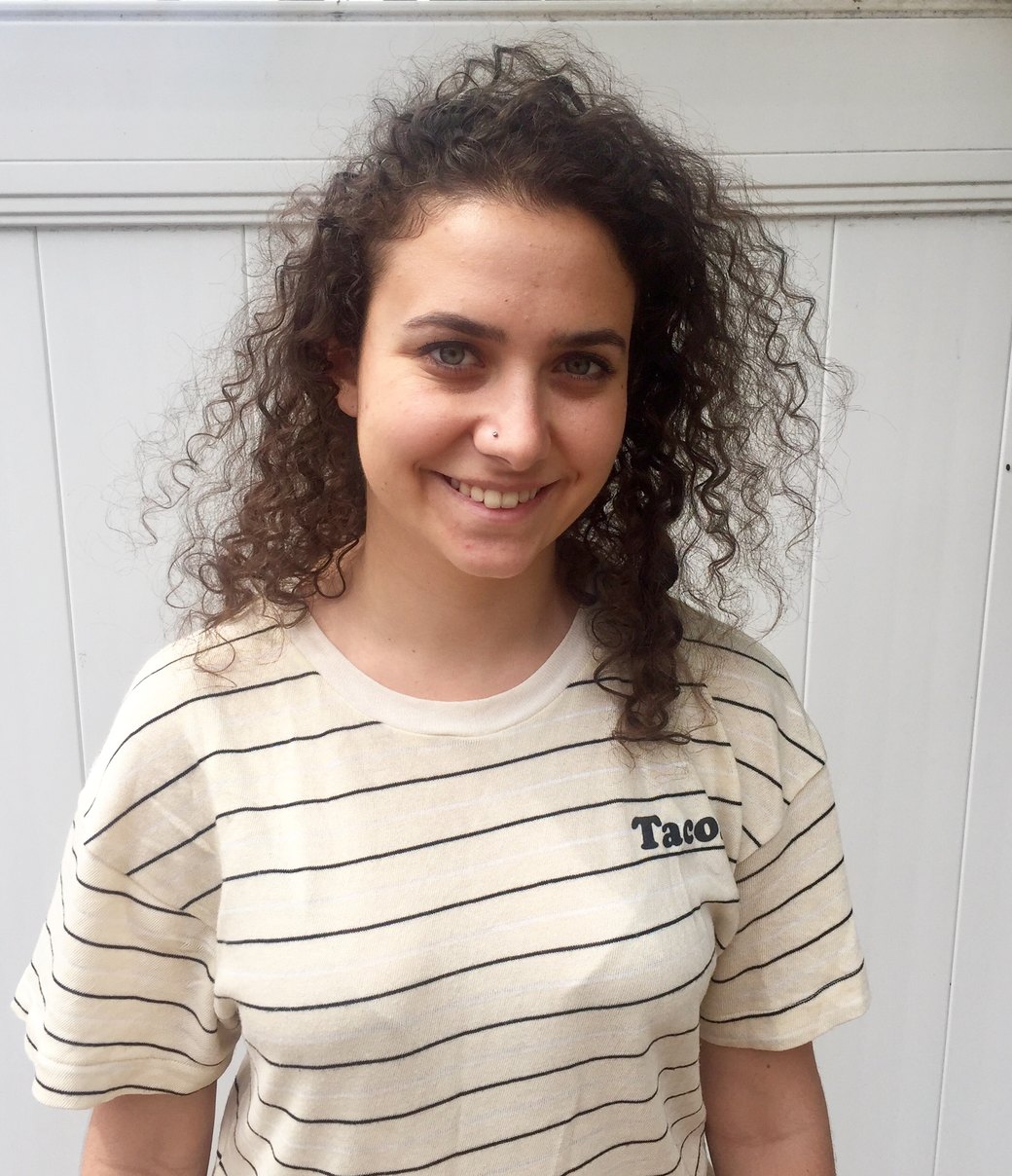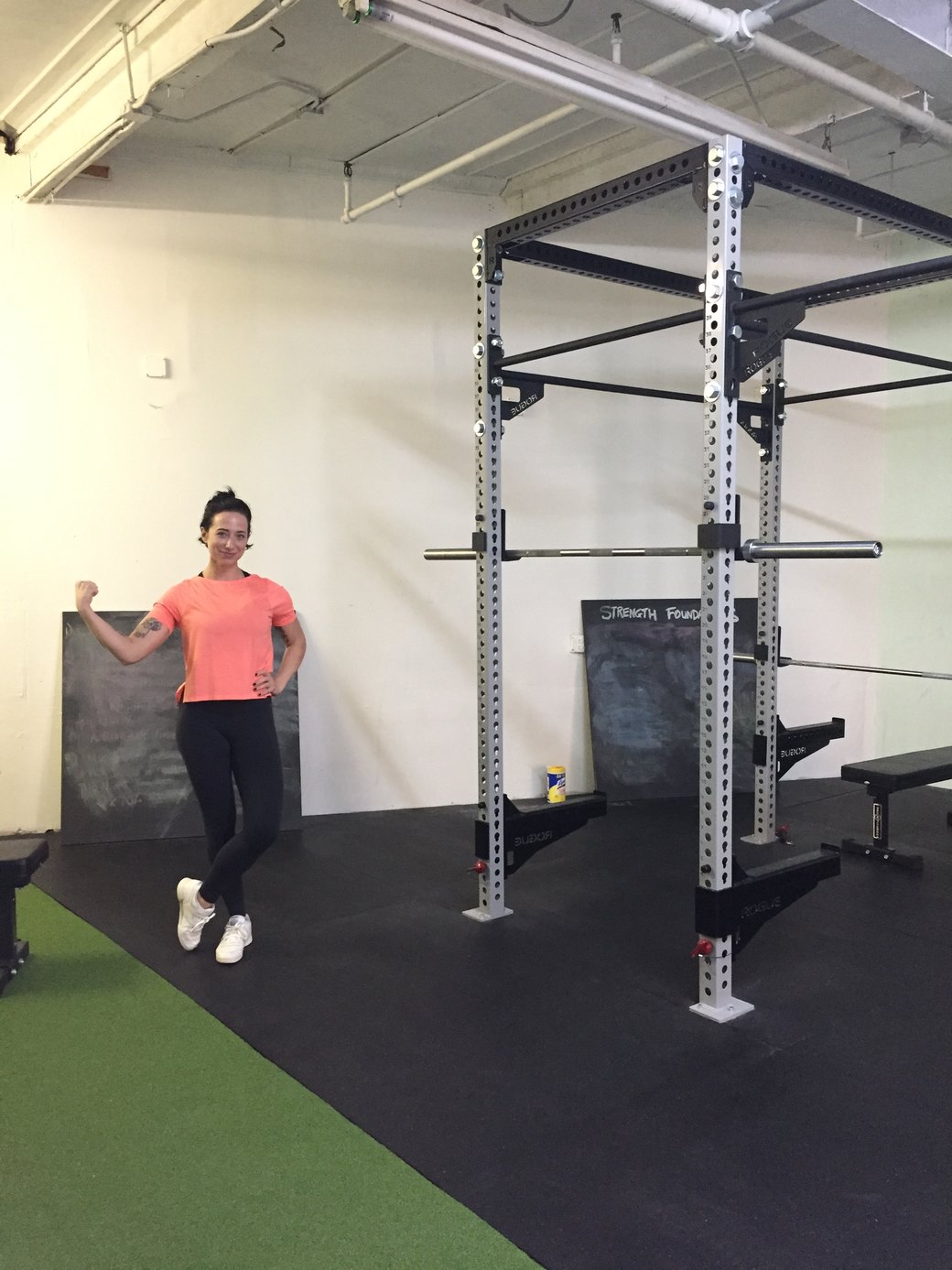
Angelica Florio
Bushwick has a new gym and barbell club called Strength for All that’s specifically geared towards teaching women and non-binary folks how to powerlift and strength train. Strength for All is the first gym that founder Shannon Kim Wagner opened after she founded the Women’s Strength Coalition, a nonprofit organization that holds fundraising powerlifting competitions around the country. Wagner wanted to use her own life-changing experience with weight training as a response to the 2016 presidential election, which left her feeling like she needed to take action.
“I first got the idea to start the coalition when I was at the Women’s March because [when] I was there I felt like I wasn’t actually doing anything. I was like ‘Cool, I’ve traveled by bus to be here and now we’re just sort of standing around but I’m not literally helping anybody right now,’” Wagner said.
The first competition of the Women’s Strength Coalition took place in April 2017 and it was called Lift for Planned Parenthood, which raised nearly $15,000 and was written about by The New York Times. Now, two years later and thousands of dollars raised by the Women’s Strength Coalition later, Wagner has opened her first gym that’s located at 1111 Dekalb Avenue.
“We’re finally able to have a space now to make it more accessible to people in multiple capacities,” Wagner said. The gym has a sliding scale rate, either for drop-in classes, class packages, or for monthly memberships, and anyone can sign up for a free intro class. Wagner explained that she decided not to verify people’s incomes when they become members, “because that doesn’t tell the whole story,” she said.
The gym is centered around women and non-binary people, however men are welcome if they follow policies.

Wagner explained that finding an affordable barbell gym in Bushwick is difficult, but Strength for All is finding a gym where women can feel 100 percent comfortable learning to lift heavy weights. One of Strength for All’s trainers, Lady Velez, is a medical student who spoke about the biases that keep women away from weight room, or more specifically, the barbells.
“As women I’ve found across my experiences that we just have never been told to grab a barbell. So to think about squatting with a barbell, it’s more of a social upbringing that we all have and the media that it just seems so foreign and strange and kind of scary that you kind of have to work through that hump a few times before people allow themselves to be comfortable,” Velez said.
Both Velez and Wagner explained that, once they started lifting weights, they had to face a whole new set of harassment at some gyms. Velez said that people often told her, “Don’t get too big or don’t get too strong,” which, she said, “It was actually hurting me because I’m the strongest and healthiest I am now since grabbing a barbell and introducing strength training into my life than I ever was when I was 24 and younger.”
The emphasis on strength and health rather than appearance is of the utmost importance for Wagner, who explained that her past experiences with an eating disorder have heightened her awareness of how harmful any comments about a woman’s body can be.
“Coming from the background of having an eating disorder, I initially was a yoga instructor and then I was a runner and I did all sorts of different types of sports where really the end goal was just to make myself smaller and shrink,” Wagner said. “When I started strength training, it was the first time that I was able to view my body as something other than an ornament. I was building strength and personal power and that feeling translates into every other area of your life—most people that lift will say that.”

Not only does powerlifting offer greater appreciation for one’s own body regardless of its appearance, but it also helps people gain a greater sense of community. The Women’s Strength Coalition, Wagner’s organization, has been bringing female powerlifters together since its inception, and now Wagner hopes to see Strength for All do the same. Many of the gym’s coaches and administrators first met each other through Women’s Strength Coalition, including Sayeeda Chowdhury, a medical school student who became Women’s Strength Coalition’s Community Outreach Director after first participating in the Lift for Planned Parenthood in 2017.
Chowdhury had only started powerlifting—certain practice consists of squat, bench press, and deadlift—a few months before attending the Lift for Planned Parenthood, because a friend from school had taught her how to lift a barbell. Chowdhury described her first experience at the competition in 2017 saying, “The community of female lifters and just of Women’s Strength Coalition was so amazing. It was so supportive, so loving, and we just encouraged each other to be our best selves… It was an experience I never ever thought I would ever have, and in a community I didn’t think I would ever be a part of.”
Chowdhury explained that powerlifting had helped her manage her stress that resulted from a combination of medical school pressures, her close family member’s death, and the 2016 election of Donald Trump that threatened Muslims like herself. Like many women, Chowdhury said that before powerlifting she mostly worked out by herself on an elliptical or treadmill.
“Since I do wear a hijab, I always made modifications to my gym clothes, I didn’t wear shorts, I wore longer T-shirts, I always felt like I stood out… and I didn’t think I was good [enough] at it to stand out in a good way. It was always just like, ‘oh yeah she struggles because of what she wears,’ which obviously wasn’t the case, it was just me feeling out of place and uncomfortable,” she said.
Using her own experience as a reference, Chowdhury pitched the idea that Strength for All could host special training sessions for marginalized groups to to Wagner. So far, the gym held a training session called Muslim Women Learn to Lift and Black Girls Lift. Later in April on the 27, the gym will host a class in Spanish called Fuerza Latina. It turns out that these classes can offer more than an introduction to weight-lifting, as Chowdhury recalled that the Muslim Women Learn to Lift took place just one day after the terrorist attack against a mosque in Christchurch, New Zealand killed at least 50 people.

Chowdhury said she felt apprehensive before the event as she didn’t know if people would want to partake in it, but it ended up being a huge success, “I was overwhelmingly joyous and so happy it was just a great experience to have people come together at a really vulnerable time for all of us and really find comfort and strength in each other.”
Of course, any woman or non-binary person of color is welcome to Strength for All, which has a full policy and procedure handbook that ensures the gym remains safe and welcoming. “We have a zero tolerance harassment policy just across the board. We make it mandatory that you use people’s correct pronouns,” Wagner said.
While Wagner expects that someday some sort of conflict will arise, so far the gym has run smoothly, and it’s achieving its goal of introducing more people to weight training. One member who attends the Strength Foundations eight week course, Megan Culton, said, “I was nervous at first that it may not be right for me or my lack of experience would be problematic [but] I was proven wrong very quickly. This is for everyone. The classes are difficult but rewarding, [and] it’s also been so nice to experience it with a group of people.”
If a barbell still sounds intimidating, Velez explained that she starts new students off by training them to lift PVC pipes. The trainer, who’s also a medical student set to graduate in May, uses her education to encourage women to lift.
“The reality of the matter is we’re all just sort of a bundle of a chemistry set. We all have hormones, we all have water and blood and bones and muscles, but there are basic scientific truths,” Velez said. “Lifting weights… will make you stronger. Lifting weights, when you start to feel stronger feels really good, and you’re gonna want to do more of that.”
Even if you don’t plan to hold a 200-pound barbell in a powerlifting competition, Wagner and her team at Strength for All seem confident that the experience of learning to lift can help foster stronger communities — literally and figuratively.
Editor’s Note: The gym centers women and non-binary people, but men are welcome.
All images courtesy of Shannon Wagner unless otherwise specified.
For more news, sign up for Bushwick Daily’s newsletter.




